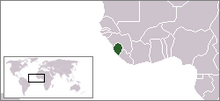
Lesbian, gay, bisexual, and transgender (LGBT) people in Mali face legal and societal challenges not experienced by non-LGBTQ residents. Although same-sex sexual activity is not illegal in Mali, LGBT people face widespread discrimination among the broader population. According to the 2007 Pew Global Attitudes Project, 98 percent of Malian adults believed that homosexuality is considered something society should not accept, which was the highest rate of non-acceptance in the 45 countries surveyed. The Constitution of Mali has outlawed same-sex marriage since 2023.
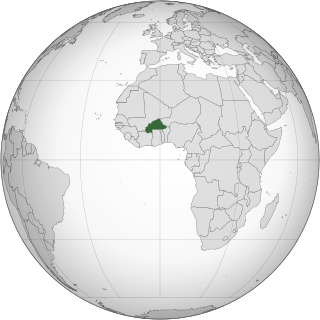
Lesbian, gay, bisexual, and transgender (LGBT) people in Burkina Faso face legal issues not experienced by non-LGBTQ citizens. Although same-sex sexual acts are legal for both men and women in Burkina Faso, there is no legal recognition of same-sex marriage or adoption rights.

Lesbian, gay, bisexual, and transgender (LGBTQ) people in the Islamic Emirate of Afghanistan face severe challenges not experienced by non-LGBT residents. Afghan members of the LGBT community are forced to keep their gender identity and sexual orientation secret, in fear of violence and the death penalty. The religious nature of the country has limited any opportunity for public discussion, with any mention of homosexuality and related terms deemed taboo.
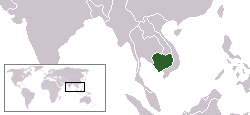
Lesbian, gay, bisexual, and transgender (LGBTQ) people in Cambodia face legal challenges not experienced by non-LGBT residents. Although same-sex sexual activity is legal in Cambodia, it provides no anti-discrimination protections for LGBT people, nor does it prohibit hate crimes based on sexual orientation and gender identity.

Lesbian, gay, bisexual, and transgender (LGBT) people in Armenia face legal and social challenges not experienced by non-LGBT residents, due in part to the lack of laws prohibiting discrimination on the grounds of sexual orientation and gender identity and in part to prevailing negative attitudes about LGBT persons throughout society.
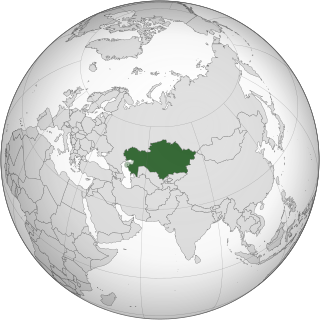
Lesbian, gay, bisexual, and transgender (LGBT) people in Kazakhstan face significant challenges not experienced by non-LGBTQ residents. Both male and female kinds of same-sex sexual activity are legal in Kazakhstan, but same-sex couples and households headed by same-sex couples are not eligible for the same legal protections available to opposite-sex married couples.

Lesbian, gay, bisexual, and transgender (LGBT) people in Somalia face severe challenges not experienced by non-LGBTQ residents. Consensual same-sex sexual activity is illegal for both men and women. In areas controlled by al-Shabab, and in Jubaland, capital punishment is imposed for such sexual activity. In other areas, where Sharia does not apply, the civil law code specifies prison sentences of up to three years as penalty. LGBT people are regularly prosecuted by the government and additionally face stigmatization among the broader population. Stigmatization and criminalisation of homosexuality in Somalia occur in a legal and cultural context where 99% of the population follow Islam as their religion, while the country has had an unstable government and has been subjected to a civil war for decades.

Lesbian, gay, bisexual, and transgender (LGBT) people in Zambia face significant challenges not experienced by non-LGBTQ residents. Same-sex sexual activity is illegal for both men and women in Zambia. Formerly a colony of the British Empire, Zambia inherited the laws and legal system of its colonial occupiers upon independence in 1964. Laws concerning homosexuality have largely remained unchanged since then, and homosexuality is covered by sodomy laws that also proscribe bestiality. Social attitudes toward LGBT people are mostly negative and coloured by perceptions that homosexuality is immoral and a form of insanity. However, in recent years, younger generations are beginning to show positive and open minded attitudes towards their LGBT peers.

Discussions of LGBT rights at the United Nations have included resolutions and joint statements in the United Nations General Assembly and the United Nations Human Rights Council (UNHRC), attention to the expert-led human rights mechanisms, as well as by the UN Agencies.

Lesbian, gay, bisexual, and transgender (LGBT) people in Mongolia face legal and social challenges not experienced by non-LGBT people, though there have been substantial improvements since the 1990s. Homosexuality was criminalised in Mongolia in 1961 through its Criminal Code. Following the Mongolian Revolution of 1990 and the peaceful transition to a democracy, homosexuality was legalised and awareness about LGBT people has become more prevalent. Hate crimes on the basis of sexual orientation and gender identity result in additional legal penalties. Hate speech based on these two categories has been outlawed in the country since 1 July 2017. Households headed by same-sex couples are, however, not eligible for the same legal protections available to opposite-sex couples.
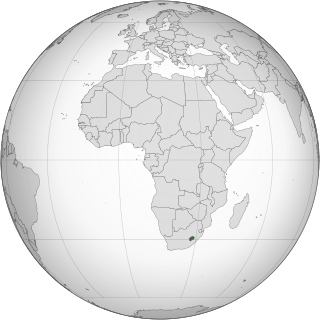
Lesbian, gay, bisexual, and transgender (LGBT) people in Lesotho face legal challenges not experienced by non-LGBTQ residents. Lesotho does not recognise same-sex marriages or civil unions, nor does it ban discrimination on the basis of sexual orientation or gender identity.

The Yogyakarta Principles is a document about human rights in the areas of sexual orientation and gender identity that was published as the outcome of an international meeting of human rights groups in Yogyakarta, Indonesia, in November 2006. The principles were supplemented and expanded in 2017 to include new grounds of gender expression and sex characteristics and a number of new principles. However, the Principles have never been accepted by the United Nations (UN) and the attempt to make gender identity and sexual orientation new categories of non-discrimination has been repeatedly rejected by the General Assembly, the UN Human Rights Council and other UN bodies.

Lesbian, gay, bisexual, and transgender (LGBT) people in Micronesia may face legal difficulties not experienced by non-LGBT residents. Households headed by same-sex couples are not eligible for the same legal protections available to opposite-sex married couples, as same-sex marriage and civil unions are not recognized. Discrimination on the basis of sexual orientation has been illegal since 2018.

Lesbian, gay, bisexual, and transgender (LGBT) people in the Marshall Islands may face legal challenges not experienced by non-LGBTQ residents. Same-sex sexual activity has been legal in the Marshall Islands since 2005, and discrimination on the basis of sexual orientation and gender identity has been outlawed in all areas since 2019. Despite this, households headed by same-sex couples are not eligible for the same legal protections available to opposite-sex married couples, as same-sex marriage and civil unions are not recognized.
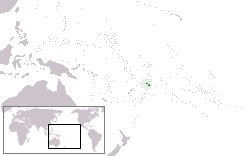
Lesbian, gay, bisexual, and transgender (LGBT) people in Samoa face legal challenges not faced by non-LGBT residents. Sexual contact between men is illegal, punishable by up to seven years’ imprisonment, but the law is not enforced.
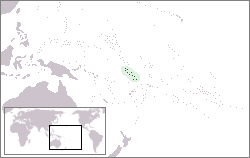
Lesbian, gay, bisexual, and transgender (LGBT) people in Tuvalu face legal difficulties not experienced by non-LGBT residents. Sections 153, 154 and 155 of the Penal Code outlaw male homosexual intercourse with a penalty of up to 14 years in prison, but the law is not enforced. Employment discrimination on the basis of sexual orientation has been banned since 2017. Since 2023, the Constitution of Tuvalu has banned same-sex marriage.
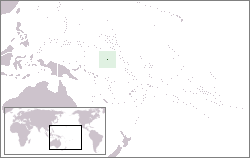
Lesbian, gay, bisexual, and transgender (LGBT) people living in Nauru may face legal and social challenges not experienced by non-LGBT residents. Same-sex sexual activity has been legal since May 2016, but there are no legal recognition of same-sex unions, or protections against discrimination in the workplace or the provision of goods and services.
The right to sexuality incorporates the right to express one's sexuality and to be free from discrimination on the grounds of sexual orientation. Although it is equally applicable to heterosexuality, it also encompasses human rights of people of diverse sexual orientations, including lesbian, gay, asexual and bisexual people, and the protection of those rights. The right to sexuality and freedom from discrimination on the grounds of sexual orientation is based on the universality of human rights and the inalienable nature of rights belonging to every person by virtue of being human.

The following outline offers an overview and guide to LGBTQ topics:

The health access and health vulnerabilities experienced by the lesbian, gay, bisexual, transgender, queer or questioning, intersex, asexual (LGBTQIA) community in South Korea are influenced by the state's continuous failure to pass anti-discrimination laws that prohibit discrimination based on sexual orientation and gender identity. The construction and reinforcement of the South Korean national subject, "kungmin," and the basis of Confucianism and Christian churches perpetuates heteronormativity, homophobia, discrimination, and harassment towards the LGBTQI community. The minority stress model can be used to explain the consequences of daily social stressors, like prejudice and discrimination, that sexual minorities face that result in a hostile social environment. Exposure to a hostile environment can lead to health disparities within the LGBTQI community, like higher rates of depression, suicide, suicide ideation, and health risk behavior. Korean public opinion and acceptance of the LGBTQI community have improved over the past two decades, but change has been slow, considering the increased opposition from Christian activist groups. In South Korea, obstacles to LGBTQI healthcare are characterized by discrimination, a lack of medical professionals and medical facilities trained to care for LGBTQI individuals, a lack of legal protection and regulation from governmental entities, and the lack of medical care coverage to provide for the health care needs of LGBTQI individuals. The presence of Korean LGBTQI organizations is a response to the lack of access to healthcare and human rights protection in South Korea. It is also important to note that research that focuses on Korean LGBTQI health access and vulnerabilities is limited in quantity and quality as pushback from the public and government continues.
